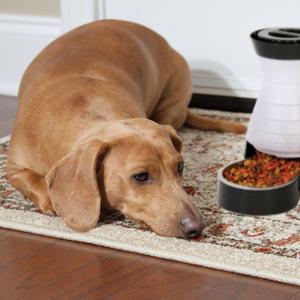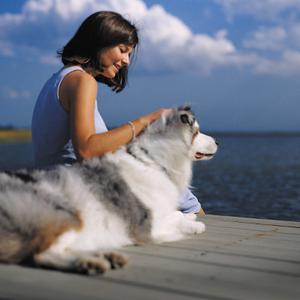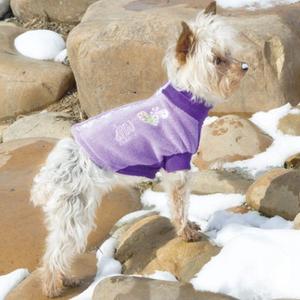By Robin Hawn, Senior Brand Manager at PetSafe
Unsurprising to most, the most common reason for a vet visit is related to skin care. Our pets seem to suffer from as many allergies as humans, and winter weather can make our dogs just as uncomfortable as we are. When environmental humidity is low in the cold weather months, and we are cuddle up with our dogs inside where our heating systems are generating warm dry air, it’s an all-around recipe for “itchy.” 
As humans, we know exactly when our skin is dry and itchy and what to do about it. Since our dogs lack thumbs and voice boxes, they depend on us to keep them from becoming extra itchy critters. Preventing and reducing dry skin irritation will ensure your pet doesn’t scratch themselves into a skin infection. The primary way to prevent skin irritation is to keep our dogs clean without overexposing them to soapy water.
Inside dogs only need to be bathed about once a week and ensure you rinse their coat thoroughly to remove all the soap. Outside dogs should be bathed more frequently. Use a natural shampoo, especial those with oatmeal or eucalyptus, to soothe dry flaky skin as well as leaving your pet smelling good for once! When your pet comes in from outside, it’s important to clean their paws. They may have picked up salt and other de-icing chemicals from the ground which can be harmful and irritating to the skin.
Good nutrition is another critical factor in the health of your pet’s skin and coat. I battled skin sensitive issue with Buckley for her first 4 years. After her vet recommended it, I moved her all natural food. I recently received a sample of the all natural food, Fresh Pet. Buckley and I both liked it enough to make a switch. Not only does Fresh Pet keep her from getting food additives which contribute to some of her allergies and itchiness, but it didn’t cause the typical gas that the introduction of new food causes. 
When skin is dry, scratching provides temporary relief but it tends to produce more itching and added irritation. Prolonged starching can cause sores and eventually a skin infection.
With Buckley, I’ve found it’s possible to break the scratch and itch cycle of madness by putting a light doggy tee-shirt on her. The shirt keeps her from really scratching the itch and actually keeps her more comfortable than if she were able to fully scratch. The tee-shirt material breathes well and keeps her cool.
Ultimately, the most important factor in pet skincare is to know your pet, pay attention to their signals and what methods of treatment are effective for your pet. If your pet has a skin issue that is new, visit your vet to ensure the symptoms aren’t related to a larger skin condition. For pups that are suffering from winter weather itch, consider the treatments recommended here so you can both enjoy all the fun the winter season brings.
Have you found other treatments that work to keep your pet comfortable in winter months?
ABOUT ROBIN
Robin Hawn is the Senior Brand Manager of the PetSafe Family of Brands for Radio Systems Corporation, head quartered in Knoxville, TN. She works to build a brand of products designed to give consumer more of the best moments they can possibly have with their pets. She has a MBA with a Marketing Emphasis, a B.A in English, and 10 years experience developing and launching marketing plans, brand strategy and PR campaigns across a variety of diverse industries. Her French bulldog Buckley typically logs the same hours at the office as Robin. She volunteers with the Most Pet Friendly Community initiative that has a mission of making Knoxville, TN the most pet friendly community in America.








